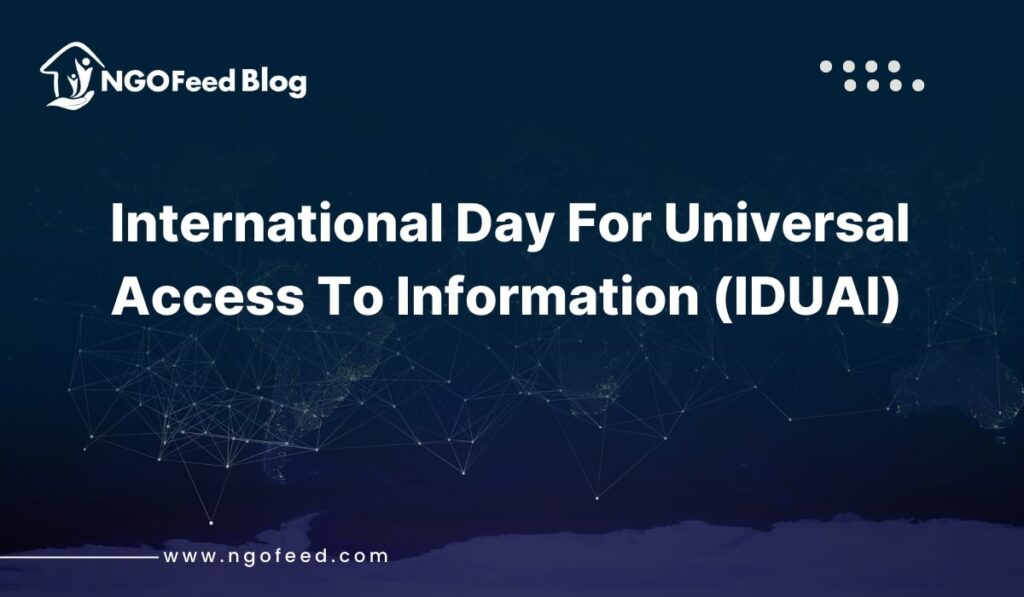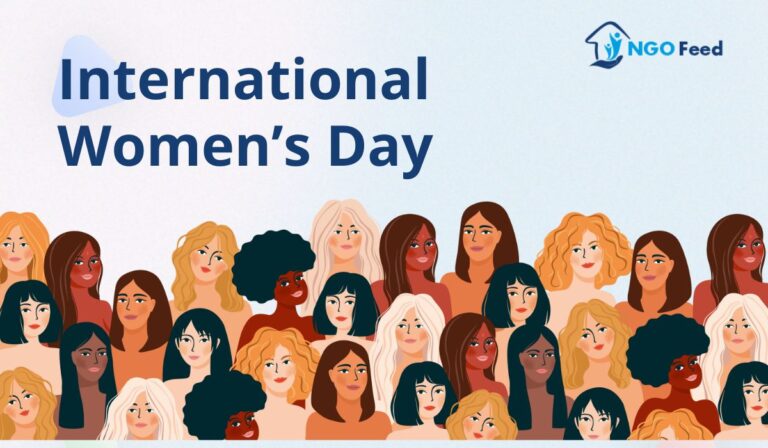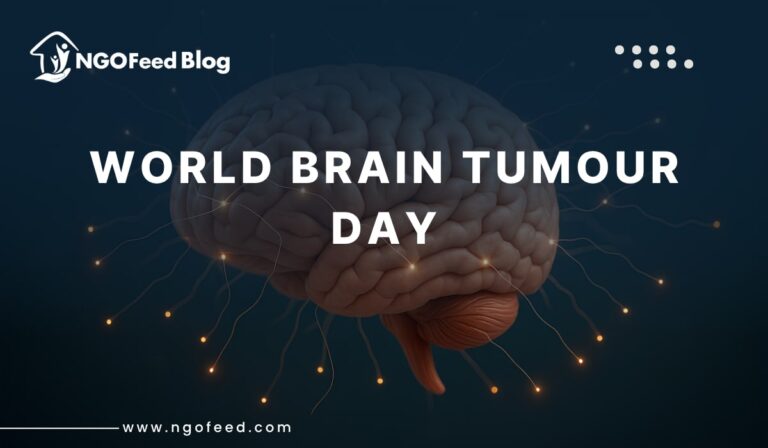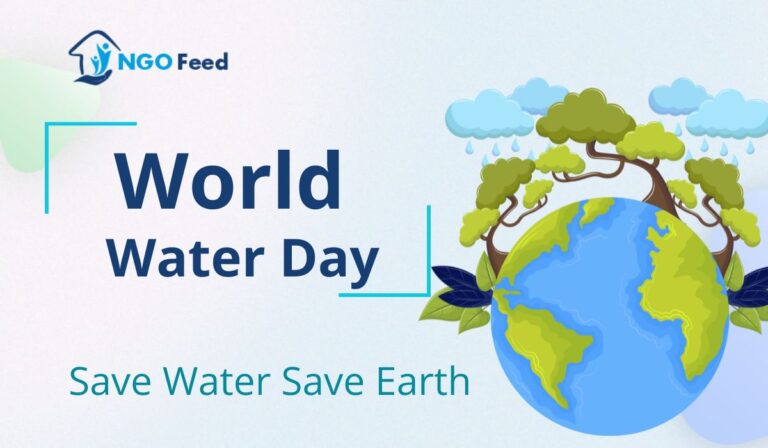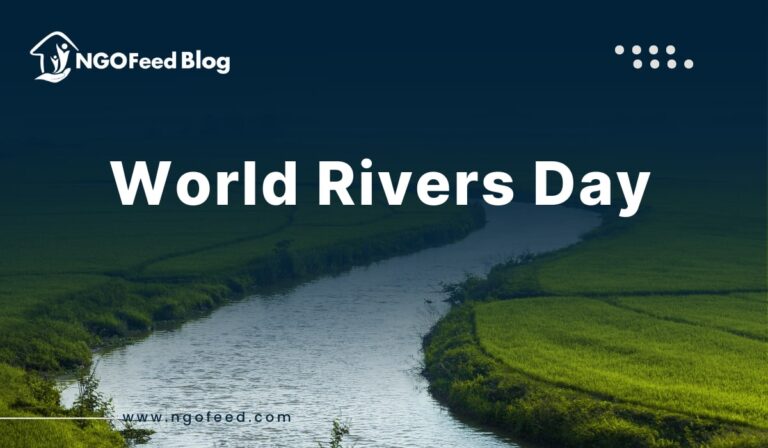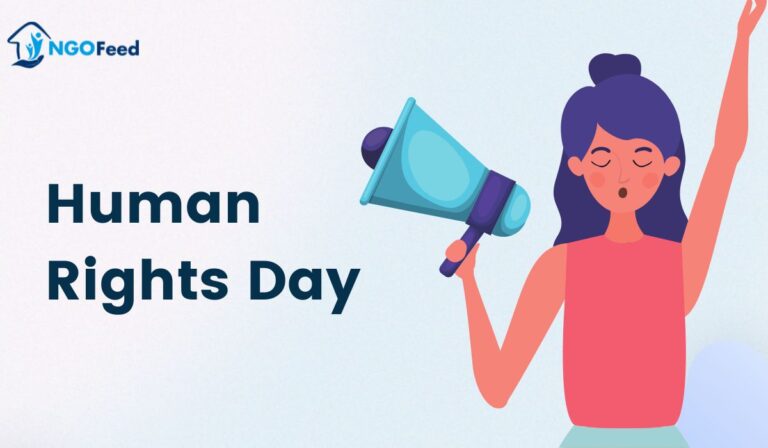International Day for Universal Access to Information: Universal access to information underpins a free, equitable, and democratic society. Information is power. Every year on 28 September, the world celebrates the International Day for Universal Access to Information (IDUAI), which draws attention to information as a human good. Right is a major engine of growth, equality, and peace. Access to information in the networked world of today is no longer limited to books or documents; it encompasses digital data, online content, and even artificial intelligence systems.
IDUAI reminds us that not only transparency and accountability but also the free flow of information, is vital for creating resilient communities where people enable people to make wise judgments about their homes, society, and countries.
Table of Contents
International Day for Universal Access to Information – Beginning and Past
- 2002 – Right to Know Day: Civil society efforts where access-to-information advocates designated 28 September as International Right to Know Day to highlight government transparency gave rise to the observance.
- Acknowledging its importance, the United Nations Educational, Scientific and Cultural Organization (UNESCO) formally declared 28 September as IDUAI, so guaranteeing access to Information as a facilitator of human rights.
- Through Resolution A/RES/74/5, the United Nations General Assembly officially established IDUAI as a worldwide observance, stressing its contribution toward The 2030 Sustainable Development Objectives (SDGs).
- Today: IDUAI is seen globally through conferences, policy discussions, initiatives, and educational events.
IDUAI 2025 Significance of Information Access
- Basic human right: Article 19 of the Universal Declaration of Human Rights (1948) and the International Covenant on Civil and Political Rights (ICCPR, 1966) confirm freedom of expression. and the right to look for, receive, and share information.
- Improving Democracy: Access to information guarantees openness in governance, fosters public trust, and enables citizens to take an active role in decision-making.
- Fighting corruption: Information rights lower secrecy, curb abuse of power, and reinforce accountability by opening official records and processes to public view.
- Sustainable Development: Central to reaching SDG 16.10, which urges public access to information and protection of basic liberties, is information.
- Digital inclusion: Access to information also means making sure all people—particularly marginalized groups—may engage with the digital world without prejudice in this age of AI, massive data, and social media.
International Day for Universal Access to Information 2025 Theme
- IDUAI is celebrated annually with a theme that highlights new challenges and opportunities.
- The topic for 2024 is “The Internet, Artificial Intelligence, and Access to Information,” with an emphasis on how AI and digital platforms are transforming the way that information is disseminated.
- The theme for IDUAI 2025, “Ensuring Access to Environmental Information in the Digital Age”, focuses on the vital importance of timely, comprehensive, and cross-border access to environmental information in an increasingly digital world
Why International Day for Universal Access to Information Important Now?
- Millions of people do not have access to trustworthy internet or public information systems because of global disparities.
- Misinformation and bogus news: Disinformation travels swiftly, particularly during emergencies.
- Digital surveillance: Brings up issues related to freedom and privacy in information access.
- Education and research: Access to reliable data is essential for students, researchers, and journalists.
- Humanitarian situations: When there are catastrophes, health crises, or conflicts, having access to information at the right moment might save lives.
How is IDUAI seen?
Worldwide Level:
- UNESCO hosts policy debates and top-tier meetings.
- The best practices for transparency legislation are shared between governments and NGOs.
- The necessity of free access is emphasized by the international media.
- At the national and local levels:
- public education initiatives on RTI legislation.
- training and workshops on media literacy and fact-checking.
- events at schools and colleges like essay contests, poster displays, and debates.
- campaigns using digital media to combat misinformation and encourage responsible internet behavior.
The Part Played by NGOs and Organizations
- UNESCO is the world’s leading organization for promoting the right to information.
- Transparency International and Access Info Europe: Advance anti-corruption initiatives via access-to-information frameworks.
- Media watchdogs and civil society: Advocate for more transparent legislation and keep an eye on its execution.
- Indian Context – CHRI and RTI activists: Spread awareness of the Right to Information Act, 2005, which has established itself as a crucial component of democratic engagement in India, and encourage its responsible application.
Information access in India
The Right to Information Act (2005), which gives people the ability to seek information from government organizations, was a watershed moment for India. This legislation has:
- Disclosed corruption in government initiatives.
- Reinforced grassroots democracy.
- Citizen empowerment to keep an eye on public expenditures and welfare programs.
- However, bureaucratic delays, rejection of applications, and insufficient digital literacy among rural communities continue to pose difficulties. IDUAI offers a forum for bringing attention to these disparities and advocating for change.
Personal Contribution
- Submit RTI requests responsibly to hold authorities accountable.
- Promote verified information and combat misinformation.
- Take part in initiatives to promote digital literacy.
- Inform the public about their right to information access, with a focus on women and rural residents.
- Back media outlets and organizations that promote free access to information.
Relevance
IDUAI’s celebration serves as a reminder that knowledge is a right, not a privilege. It reinforces the social compact between citizens and governments, guaranteeing that decision-making processes are still open and inclusive. Additionally, the digital era necessitates closing the digital gap, protecting privacy, and promoting the moral application of technology like artificial intelligence.
Conclusion
The International Day for Universal Access to Information (IDUAI), observed on 28 September, is more than a symbolic occasion, it is a call to action for governments, institutions, and individuals. It reminds us that information is the oxygen of democracy, empowering people to demand accountability, make informed decisions, and safeguard their rights. By ensuring transparency, promoting digital inclusion, and upholding the integrity of information systems, we pave the way toward a world where knowledge truly belongs to everyone.
Frequently Asked Questions (FAQs)
Q1. Why are 28 September chosen for IDUAI?
It originated as International Right to Know Day in 2002, and UNESCO adopted the date officially in 2015.
Q2. How does IDUAI link to human rights?
Access to information is part of the right to freedom of expression under Article 19 of the Universal Declaration of Human Rights.
Q3. What is the main challenge to universal access to information?
Barriers include government secrecy, digital inequality, misinformation, and lack of awareness about rights.
Q4. How does the RTI Act in India relate to IDUAI?
The RTI Act, 2005, empowers Indian citizens to demand government records, aligning with the global movement for universal access to information.
Q5. What is the role of AI in information access?
AI can expand access but also risks spreading misinformation if not ethically managed.

